|
We are so excited to have author Ciera Burch on our blog today. Her new book, Finch House, is a spooky middle grade which releases on September 5th and deals with generational trauma and family ties. Read her essay below: I love spending time with my grandparents. Whether it's by watching every show on the Game Show Network for hours, cooking a meal, or, well, driving around to find the treasure in other people's trash, I've always enjoyed the quality time. When you come from a loud, talkative family, it's always nice when you can get a moment or two to talk or sit in silence with just one or two other people. Spending quality time with my poppop is actually a big part of why Finch House exists. As a kid, driving around looking for salvageable things from the trash on the curb in different neighborhoods, otherwise known as going networking, with my poppop was pretty rare. I was usually visiting after he'd already gone or it was the wrong day or too late in the evening for it. There was a sweet spot for networking, you see. The morning of the day before trash day. Too early and the curbs were empty. Too late and the garbage workers had snatched it all up. So, the times I did get to go with him were extra special. Most of our time was spent driving around different neighborhoods, and sometimes towns, more than anything else, but that was always my favorite part. I didn't really care if we found an almost-new vacuum or a perfectly good chair, I just liked spending time with my poppop and getting to pepper him with questions or tell him about whatever book I was reading. In Finch House, Micah enjoys this quality time too. In fact, it's what makes the idea of moving so difficult for her because unlike me, she lives with her poppop. She gets moments of quality time with him every day and the idea of those moments becoming rarer, especially while she and Poppop both get older, is a hard thing to wrap her head around. Although there are parts of his life that Poppop doesn't share, which is made very clear in the book, there's a lot that he does. Their interactions throughout her life opened Micah up to plenty of history—what his life was like as a kid and how it was different from hers, the things he enjoyed doing since he didn't have the internet—but also allowed her insight into who Poppop was as a person, outside of being a father and grandfather. By spending quality time together, they're able to have a reciprocal relationship where they can learn and ask about each other. And while there is still plenty Micah comes to find out that she doesn't know about him or who he used to be, their bond is as strong as it is because the time they have spent together and what they've shared has helped make it so. So strong, even, that she’s willing to brave a haunted house to look for him because sometimes the connections we share with our loved ones can be even bigger than our fears. Would I also go in a haunted house to find my own poppop? Yes, but I think I’d be a lot more scared about it. From the publishers: Encanto meets Coraline in this spooky middle grade story that deals with family ties, fear of change, and generational trauma as it follows a girl who must convince an old, haunted house to release its hold on her and her family. Eleven-year-old Micah has no interest in moving out of her grandfather’s house. She loves living with Poppop and their shared hobby of driving around rich neighborhoods to find treasures in others’ trash. To avoid packing, Micah goes for a bike ride and ends up at Finch House, the decrepit Victorian that Poppop says is Off Limits. Except when she gets there, it’s all fixed up and there’s a boy named Theo in the front yard. Surely that means Finch House isn’t Off Limits anymore? But when Poppop finds her there, Micah is only met with his disappointment. By the next day, Poppop is nowhere to be found. After searching everywhere, Micah’s instincts lead her back to Finch House. But once Theo invites her inside, Micah realizes she can’t leave. And that, with its strange whispers and deep-dark shadows, Finch House isn’t just a house…it’s alive. Can Micah find a way to convince the house to let her go? Or will she be forced to stay in Finch House forever? Pre-order here. What’s Already Been Told By Tonya Abari The market is becoming oversaturated with diverse children’s books about hair. In 2019, when I began querying Locs, Not Dreads for the second time since I first wrote the manuscript in 2013, much of the feedback that I received was that the market was becoming oversaturated with books about Black hair. With the success of Matthew A. Cherry’s Hair Love, Derrick Barnes’ Crown: An Ode to the Fresh Cut, Natasha Tarpley’s I Love My Hair, author/illustrator Sharee Miller and independently published natural hair series by Crystal Swain Bates – and with growing national support for The Crown Act – traditional book publishing and mainstream media further showcased the special relationship that Black folks have with hair. I didn’t have one picture book about Black hair as a child, so I’m ecstatic to fill my daughters’ bookshelves with mirrors. In this house, there is no such thing as too many! We buy them all. Growing up in salon culture (my mom was a career cosmetologist), I’ve been around hair all my life. At one point, after returning my hair from its relaxed state to its natural state, I even thought I wanted to open up a natural hair salon. Although I never took that route, I knew as a children’s author that hair would be one of the many topics I wanted to explore. I queried many agents, cold pitched editors, and participated in Twitter pitch events. I did receive some initial interest, but I also was told that in the coming years there would be way too many books about Black hair. Was I too late? At first, I took this advice with a grain of salt because how many anthropomorphic books are out there? How many books with unicorns and princesses and ladybugs? Yes, there are now more books than what I had growing up about Black hair – but I haven’t seen my book yet. I had to keep this energy alive in my soul. But as rejections rolled in one by one, I wondered if there was enough room for my story. I finally found a great home for the book – with an indie editor/publisher who understood its significance from the jump. And I now realize that if I would have taken those words “it’s already been told” to heart, there might not be a Locs, Not Dreads publishing on September 5, 2023. While Locs, Not Dreads is based loosely on my niece and her mom, who loc’d their hair well over a decade ago, the manuscript is littered with familiarities that I’ve experienced as a girl, woman, mother, student, and educator who is unapologetic about rocking natural and/or loc’d hair. In fact, as a teacher, I taught many lessons on denotation and connotation relating to Black hair terminology – and those lessons are ones that I’ll never forget (they are now memorialized in the pages of my debut picture book). I knew that fact alone separated Locs, Not Dreads from the other picture books that were on the market even if no one else had picked up on these nuances. This brings me back to my original point. There can never be too many stories that exist, especially for groups that have historically been marginalized in traditional publishing. My advice to new writers who have stories that have seemingly already been told: tell your story anyway. The spectrum of our experiences run so deep. Perhaps the topic has been written about before – but it definitely hasn’t been written by you. Locs, Not Dreads written by Tonya Abari, illustrated by Chasity Hampton publishes on September 5, 2023 with The Innovation Press. For additional information, be sure to follow Tonya online at www.tonyaabari.com or on Instagram.
Trigger warning: This essay mentions pregnancy loss. We are so honored to host author Saira Mir on our blog today. She talks about her experience as an OBGYN, pregnancy loss and her upcoming picture book, Always Sisters. Hard Stories Can Be the Easiest to Write By: Sara Mir 2019 was primed to be an epic year. My debut picture book was going to be released and I had joined a bustling new practice as a full-time OBGYN. The office was growing, along with my waistline as I inched toward my 20th week of pregnancy. A little girl named Nura was set to join our family. Juggling many roles was challenging, but my heart and hands were content being full. My debut picture book, Muslim Girls Rise, is a biographical compilation of contemporary Muslimahs who faced unimaginable challenges and still rose. I was eager for the book to hit shelves and celebrate these inspiring women who defined resilience. The irony is that before the book released, I’d face my own trauma and instead of rising, I fell and stayed down. In early 2019, writing came to a screeching halt, as did my career as an OBGYN. I chose to end my wanted pregnancy at 20 weeks for a severe anomaly that had rendered my girl’s little chance of survival and an even smaller chance of a life without suffering. Saying goodbye to Nura was a mercy, but one that broke me. The complexity of caring for women after I suffered my own traumatic pregnancy loss was too much to bear. I hung up my white coat for an undetermined period of time. For the first time in my life, I was completely lost. The only emotion I felt was pain - deep, searing, soul-crushing pain. The conflict I felt for creating strong women while I was curled up in my bed avoiding social contact while nursing an empty womb added a layer of shame. Years of grief and guilt later, I’d realize my definition of resilience was flawed. It doesn’t mean resisting falling. True strength is accepting the pain of loss. It is choosing to grow in compassion and kindness and empathy from each brush of grief. After we buried Nura, I held my eldest child and watched her confusion as she mourned the loss of a baby sister she’d eagerly anticipated. A sister she met only once in the hospital, to say hello and goodbye. It wasn’t just the loss of a sibling, but of an entire family we had built in our hearts. A select few friends and family surrounded us with comfort. Most shied away out of discomfort or uncertainty. What does one say when a baby dies? The deafening silence made me determined to break it. If not for myself, then for other children like my daughter whose grief was more heartbreaking than my own.
Pouring our family’s story into Always Sisters was therapeutic. I honored the beauty that goes into loving someone you’ve never met. I sorted through our stages of grief, confusion, and loneliness. I broke our emotions down into words a child can relate to - simple, but powerful carriers of loss. I intended to write this book for others, but it gave me the greatest gift of working through my tragedy. As Always Sisters nears release, it feels like a full circle moment after years of hurting, healing, and hoping. In the book, the main character Raya learns that grief is love without a place to go. When that love is shared, the pain lessens. I mourned during my debut book release, but now I will celebrate and honor Nura with all the love that has been trapped inside for four years. About: Saira Mir is a physician and author of the award-winning picture book Muslim Girls Rise, which she wrote for her daughter and other children to have Muslim feminist role models. As an OB-GYN, she has cared for many families through pregnancy loss, but could not find the book she needed to help support her daughter through grief over her own family’s loss, which inspired her to write Always Sisters. She lives in the DC area with her kids and is always on the hunt for the next best playground and bubble tea. Instagram @sairamirbooks www.sairamir.com About the book: This much-needed picture book about navigating the difficult experience of pregnancy loss meets young readers at their level to offer a tender look at grieving someone who never entered the world. Raya can’t wait for her baby sister to arrive. She’s already got a name—Nura—and Raya is certain they’ll be best friends. She’s got all kinds of plans for things they’ll do together like run through the sprinklers, play dress-up, and give piggyback rides. But one day, Mama returns from the doctor with tears in her eyes. Nura won’t be coming home after all. Raya feels confused and sad, like all the love she has for Nura is trapped inside her. With the help of family, friends, and her school counselor, though, Raya finds a way to grieve this loss and to share the love she’ll always feel for her sister. Links to purchase: https://www.simonandschuster.com/books/Always-Sisters/Saira-Mir/9781665901567 Head shot photo credit: Sosan Akhtar Why Not Me?
A Diverse Author’s Fight Against Self-Doubt In my case, writing books wasn’t something I thought I could ever do. Growing up in Canada, I spent countless hours surrounded by books in my local library. But my future turned out to be studying and graduating with a bachelor’s degree in accounting years later. Not your typical path to becoming a traditionally-published author. Motherhood changed everything for me. Of course, I wanted to pass down my love of reading. Going to the library, especially during summer breaks, was usually met with cheers. It wasn’t until one of my kids asked why the library had no children’s stories featuring Black American Muslim main characters that everything shifted. I didn’t have an explanation. In 2012, my new year’s resolution was to complete a first draft of an idea I had for a novel. It was a middle grade fantasy and took me nine months to complete. And it was terrible. I didn’t know anything about character development or world building. So, I didn’t do any of it. Fortunately, my take away was that I could actually finish a manuscript draft. And Alhamdulilah, that’s what stuck with me. At this point, ignoring my lingering self-doubt allowed me to push forward. I approached learning the craft of writing like a job. I took classes, attended a few conferences, and joined a writing group. By 2017, I had amassed a three picture book series and a coming-of-age young adult manuscript that were all well received but still didn’t result in any agent offers of representation. My self-doubt awoke and was my constant companion, whispering to me to give up on the dream of traditional publishing. Maybe the YA stories I wanted to tell featuring Black American Muslim teens would never find publishing professionals that believed in them. Maybe all the time I spent learning this new skill was just a huge waste of time. Random passive aggressive comments from one or two fellow authors made it worse. But my family, my faith, and my writing friends all encouraged me to keep going. The result was my second, contemporary young adult manuscript. It was 2018 and I paid a sensitivity reader to give me an honest critique of this project. Based on the feedback, I took the bold step to rewrite the entire thing. Staring at a blank screen was terrifying but I did it anyway. This process took me into 2019 but I had a much better manuscript. After six months of revising, I steeled myself and dipped a toe into the query trenches. I pitched this new Contemporary YA project in the Oct 2019 DVpit and the Dec 2019 PitMad. My Tweet was very popular at both events—and got the attention of my now agent, Kristina Perez. By February 2020, I had signed with Kristina. Next, came my manuscript revisions. For exactly 365 days, my self-doubt was well fed. I fought the negativity inside my head and persevered. My manuscript was on submission from Feb. 2021 to Dec. 14, 2021. During that time, I distracted myself but many times my thoughts turned sour. An email on Wed, Dec. 15th surprised me. It was an offer from an actual editor. After several conversations with my agent, to keep this secret and my sanity, I started a submission journal. Whenever my self-doubt overwhelmed me, I’d jot it down. Every irrational fear and crazy thought filled the pages. In early 2022, after the two-book deal contract was negotiated and then landed in my email, I wrote this last entry in the journal. “InshaALLAH, my imposter syndrome will go away for a while and I can and will enjoy this moment.” As I work on other manuscripts, that personal goal of mine is still a work-in-progress. Khadijah VanBrakle Author of FATIMA TATE TAKES THE CAKE, her debut Contemporary YA novel is out now. A second YA novel is due out in 2024, both from Holiday House. Website: https://www.khadijahvanbrakle.com/ Twitter: https://twitter.com/LVanBrakle Instagram: https://www.instagram.com/khadijahvanbrakle/ Headshot photo credit: Khadija Chudnoff Website: https://www.khadijahvanbrakle.com/ Twitter: https://twitter.com/LVanBrakle Instagram: https://www.instagram.com/khadijahvanbrakle/ KidLit in Color author Gabriele Davis is pleased to reveal the cover for her debut picture book, PEACHES, published by Abrams and illustrated by Kim Holt. It will release in May 2024. PEACHES is a lyrical, intergenerational story inspired by Gabriele’s father and his love of homemade peach cobbler. It narrates a milestone moment in a young girl’s life as she assumes a poignant family tradition. It celebrates joy, perseverance and how those we love live on in us. Gabriele feels lucky to have been perfectly matched with artist Kim Holt, who skillfully conveys these themes as well as the loving bonds between family members in this story. Here, Gabriele chats with Kim about her illustrations. I am delighted with your gorgeous illustrations for PEACHES. They are so full of warmth and heart! What inspired your artistic approach to this book? KH: When PEACHES was presented to me, I immediately said yes! I had randomly done some sketches the year before of my grandmother and me baking and wanted to do art around that relationship. I stored those ideas away, and when this came up, I used them as a starter guide for my sketches and reflected on my relationship with my grandmother when illustrating the story. I love using lots of color in art. In reading the story of PEACHES, I wanted the characters to stand out with pops of color. The peaches themselves are a central character, so I chose colors that were more complementary to each other. I wanted everyone to be able to stand alone in a scene and complement each other when they were together. Did you have to do any visual research? KH: I always do extensive research for each book. Even though I have baked pies, I spent a lot of time researching techniques for making peach pies and cobblers. I wanted to see the process, what counters look like, and the arrangement of ingredients. I also wanted to see the differences in approach between adult and child baking. Is there anything in particular about this story that resonated with you? KH: This story touched me deeply because I spent so much time with my grandmother, Vivian Garnes, and, for a time, lived with my grandparents. She gave me my foundation for cooking and my love for others. She taught me how to make my first pie from scratch, so the memories were there. Food can express love, especially when you take the time to prepare someone their favorite dish. Anyone who knows me can tell you I love food, recipes, cooking, and peach cobbler :). What do you hope children take away from your drawings? KH: I hope children will relate and see themselves in the moments captured. I hope they notice the details and spend time with each page looking for more. Thanks for putting your heart into this book, Kim! Can you share what’s coming up next for you? KH: The books I illustrated that are coming out are Justice Ketanji: The Story of Supreme Court Justice Ketanji Brown Jackson and The Bronx Is My Home. KIM’S BIO: I am fascinated by capturing moments in time. In particular, I love painting special moments of joy, wonder, and quiet struggles and hearing the conversations and memories they stimulate for people of all ages. I am a painter and illustrator who strives to capture these moments in my artwork, and whether young or old, I want people to see themselves. I have had a passion for art and drawing from an early age and found great inspiration growing up directly across from the Brooklyn Museum. I have a BBA in Marketing from Howard University and a BFA in Animation from the Academy of Art University. My passion is creating energetic, expressive work full of personality, typically incorporating a vibrant and fresh color palette. I make art and live in the Washington D.C. metro area with my husband and two dogs, Sugar and Spice. See more of my work online at: www.kimscollectionofstuff.com IG: @kimholt As a child, Gabriele longed to see families like hers reflected in the books she read. Now she gets to make that happen for other underrepresented readers. Gabriele holds an MA in magazine journalism and has worked as a children's magazine editor and freelance writer. She lives in the Northwest Hills of Connecticut where she tutors, teaches yoga, bikes and writes. She enjoys creating works that inspire children to laugh, love, discover their inner strength, and feel seen. Peaches, releasing in May 2024, is Gabriele's debut picture book. Her second picture book, Our Joyful Noise, will follow in Fall 2024.
Learn more about Gabriele and her books at www.gabrieledavis.com. Twitter: @GDavisBooks Instagram: @iamgabrieled In the fall of 2021, I learned that my debut picture book, The Arabic Quilt was on a banned book list at Central York District. It was taken off of shelves and children were not allowed to read them. The book that took years to write and find a publisher. The book I was receiving dozens of emails and messages about how kids’ eyes lit up when they saw an Arab or Muslim character on the cover. The book that I had stayed hours at the library to research. The book I devoted a lot of time to learning about the publishing industry for. The book I met up with critique partners for, and stayed up late to revise and edit, long after I had put my young kids to bed. The book that was published right before the pandemic hit in early 2020. Some people say I’m lucky that the book is now a banned book because of the attention it would get. But I disagree; there are only a few picture books by Arab Muslim American authors. For a period of time, students weren’t able to check out The Arabic Quilt from their libraries, and this picture book could have been the only book with a positive portrayal of an Arab Muslim. The censorship and ban were upsetting and another hurdle as an author of color. It’s a privilege not to have to worry about whether or not your book will be banned because of who the characters of the book are and the theme of the book. The book ban reminded me why I was so adamant, and so persistent about publishing The Arabic Quilt in the first place. Navigating the world as a Muslim and an Arab is challenging in its own right but these challenges are multiplied further in the world of publishing, something I believe many BIPOC authors can relate to. Fortunately, the ban against my book was also lifted shortly after thanks to student protests at the district and an outcry from around the country. Around the same time, my editor emailed me telling me two districts, one in New York and one in Pennsylvania purchased a total of 22,000 books as part of their school curriculum. I was reminded that our stories are needed, despite other districts banning them. He asked me if I’d be interested in writing another book for them and of course I was interested.
It took me some time to think what topic I’d write. I brainstormed with my author friends and went to the library, of course. Then something hit me, The Arabic Quilt is loosely based on true events growing up, so why not write another book that’s also loosely based on true events, this time as an adult: when my debut book was banned. Having Kanzi as the main character again would be even more powerful so I kept her and all of her classmates. I also decided to bring her Teita to the U.S. on a visit to encourage her to use her voice, relating protests to the famous Egyptian revolution in 2011. I was really excited that Anait Smeridzhyan was available to illustrate again and she did an incredible job again with illustrations. This book has a serious tone to it because books continue to be banned across the country, and it’s based on true events, as I write more details about it in the author’s notes. But it’s also a book filled with hope, love, supportive friends and community. I hope children of all ages realize that their voices are truly important and they can make a difference. I hope this book sparks conversations with students and kids with their parents and educators and librarians about the freedom to read, protests, allyship, and the power of their words. Thank you to all librarians everywhere who are fighting for the freedom to read, this one is for you all. -- Aya Khalil, M.Ed, is an award-winning author of picture books and board books. Aya and her books have been featured in Oprah Daily, Teen Vogue, Yahoo!, Book Riot and USA Today. Her writing has been published in The Huffington Post, The Christian Science Monitor, Toledo Area Parent and many others. Her debut picture book The Arabic Quilt: An Immigrant Story, has won numerous awards and honors. She is also the author of a board book, Our World: Egypt, and The Night Before Eid: A Muslim Family Story. The Great Banned-Books Bake Sale, tells the tale of a girl and her classmates finding out their school district has banned diverse books and they organize a bake sale and protest. Aya is a Muslim Highlights Foundation Storyteller and a co-founder of Kidlit in Color, a group of traditionally published BIPOC creatives who nurture one another, amplify diverse voices, and advocate for equitable representation in the industry. You can order The Great Banned Books Bake Sale wherever books are sold. Find her at twitter.com/ayawrites or instagram.com/ayakhalilauthor |
Archives
July 2024
Categories
All
|

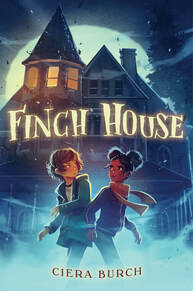
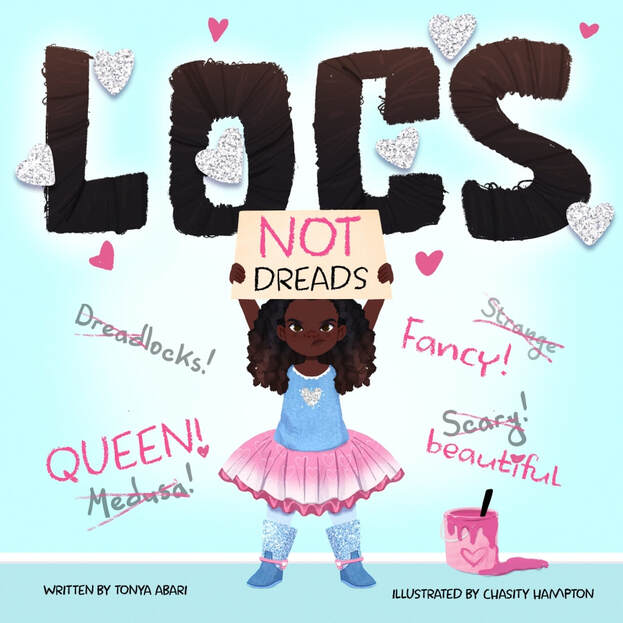
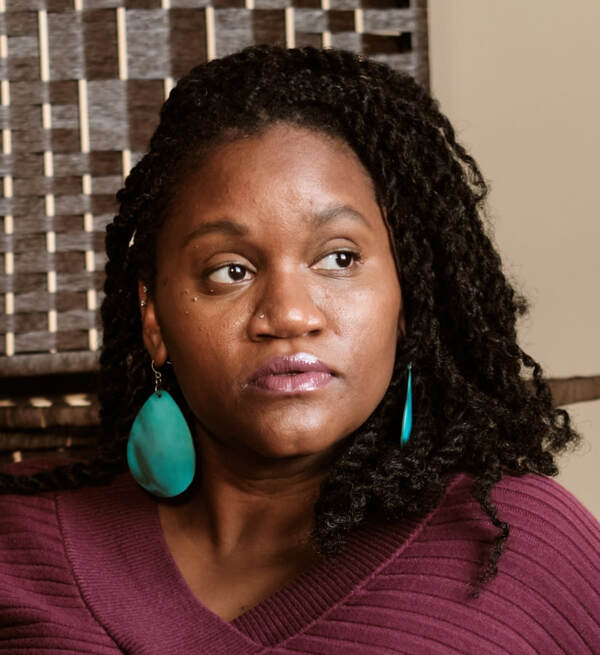
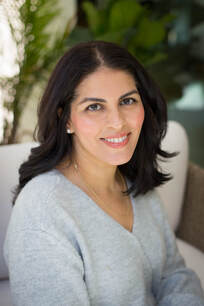
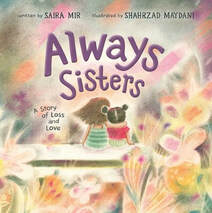
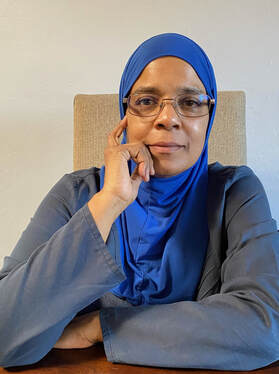
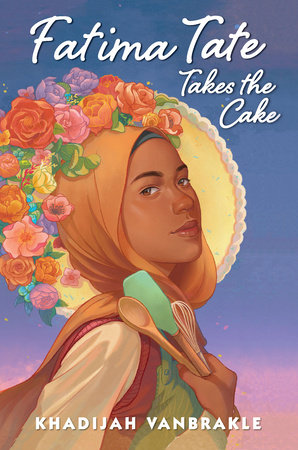
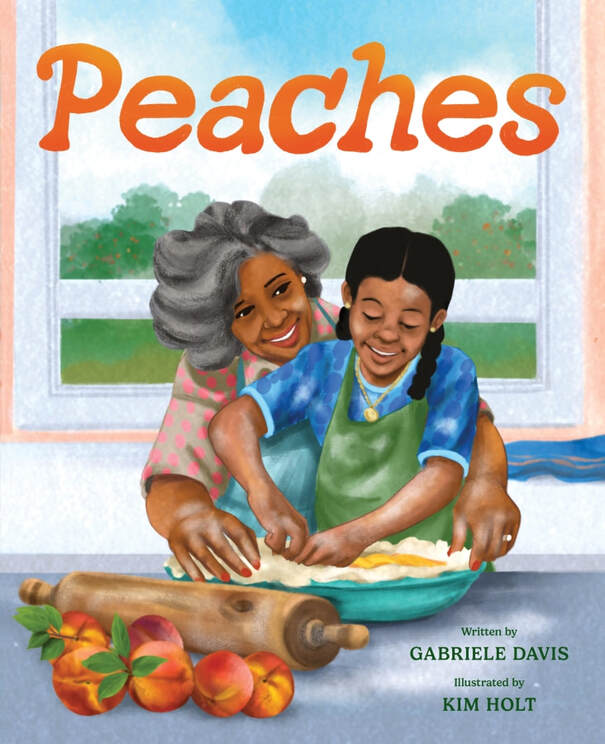
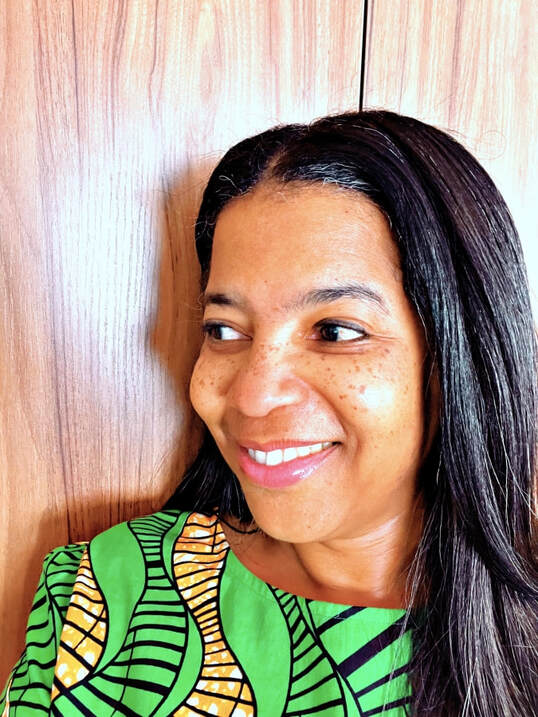
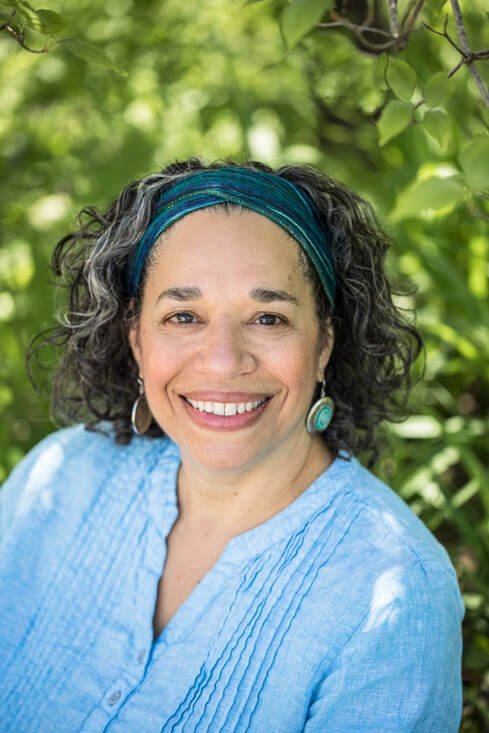
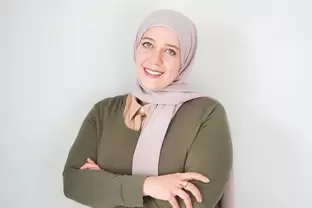
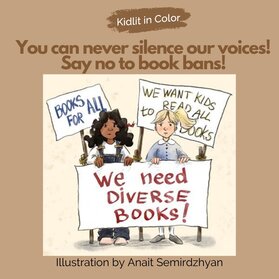
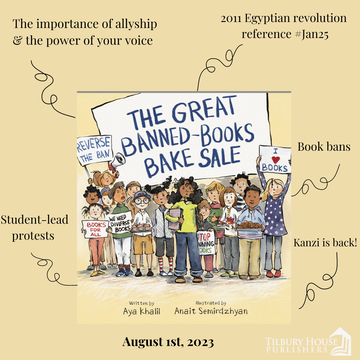
 RSS Feed
RSS Feed



